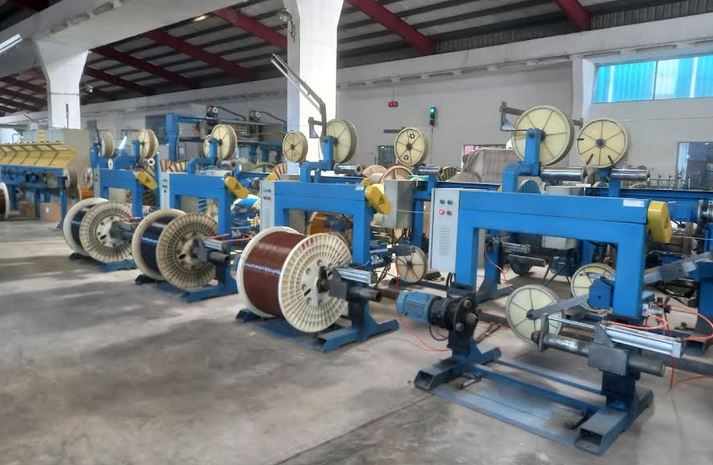News Flash

KHULNA, Nov 18, 2025 (BSS) – The Bangladesh Cable Industry Limited (BCSL), a state owned profitable enterprise, has planned to export fibre-optic cables to Nepal and some African countries by 2028.
The BCSL has also made an exception by earning profits every year through the sale of fiber-optic cable since its inception one and a half decades ago.
In the last fiscal year (FY25), the enterprise made a profit of Tk 31 crore and its total profits in the last five years was Tk148 crore.
In 2010, it began producing optical-fiber cables, and currently the company supplies nearly 60 percent of the optical-fiber telecom copper cables used across the country -- ensuring its strong foothold in the digital connectivity era.
The company has also devised a medium-term plan to meet the demand of the government and private institutions by installing new machinery for producing High Density Polly (HDP) pipes suitable for the country’s Water and Sewerage Authority (WASA) and setting up a local area network (LAN) cable plant by December 2026.
Besides, it has come up with a long-term plan to contribute to the country’s power sector by December 2030.
Officials said the company’s steady progress has been driven by its time-befitting product diversification, continuous modernization of machinery, and planned expansion aligned with evolving market demands.
The company has prepared a roadmap for boosting the annual production from 20,000 kilometers to 25,000 kilometers by installing three more new machines at the optical fiber cable plant within the next five years, increasing the production capacity from 6,500 kilometers to 8,000 kilometers by installing two more new machines at the HVPE telecom duct plant, and raising the production capacity of the super enamel copper wire plant from 300 tons to 600 tons.
At the same time, the company has planned to install rooftop solar panels with its own funds by December next year.
Located in Khulna’s Shiromoni, the BCSL operates under the Posts and Telecommunications Division of the Ministry of Posts, Telecommunications, and Information Technology. Another component is Telephone Shilpa Sangstha (TSS) which manufactures telephone sets, fax machines and other equipment.
Both the entities were established with technical support from Siemens AG of West Germany. On May 8, 1967, the factory was set up on 31.58 acres of land on the bank of the Bhairab River in Khulna’s Shiromoni industrial area.
It’s only production unit, along with all administrative activities, is situated inside the Shiromoni Cable Shilpa compound in Khulna City.
After the country’s independence, the company started trial production, and it started commercial production in February, 1972, with the company’s copper telecom cables meeting 100 percent of the domestic demand. In 2005, the company began operating under the Companies Act following Siemens AG’s share divestment.
Later, the optical-fiber cable plant was installed in 2010, while the HVPE telecom duct plant was installed in 2016, and electrical overhead conductor and cable manufacturing plants were installed in 2019.
Talking to BSS, Moslem Uddin, General Manager (Administration) of BCSL, told BSS that a series of upgrades was followed as a core pre-heating unit was added in 1998, tandem lines and stranding line were installed in 2001 and 2003 and a drum twister machine was set up in 2004.
Through continuous technological upgrades -- something other state-owned enterprises largely failed to do – the BCSL managed to stay competitive. The company currently employs 33 officers, 163 staff members and an additional 125 outsourced workers, he said.
Company's General Manager (Production) Enamul Haque said that the quality of raw materials imported for production at Bangladesh Cable Industry Limited and the quality of manufactured products are tested by BUET, KUET, CUET and MIST.
He said BCSL uses around 99 percent of copper rods imported from developed countries like Australia, Korea and Malaysia, over 60 percent of aluminum rods imported from Malaysia, China and India, world-class PDC and steel core wires imported from China and India. The quality of the products is ensured as per Bangladesh standards.
"Considering various sectors, including communication, the country needs to have a five lakh-kilometre fibre optic cable network. But there is an only one and a half lakh kilometre of fibre network in the country. Again, 75 percent of the existing network is an overhead network, which is at risk during disasters. To keep the communication network smooth and less risky, the connections need to go underground. Old cable networks of various government and private service sectors should be brought under a single fibre-optic cable network. Therefore, there is immense potential for the fibre optic cable industry in Bangladesh.”
However, neighboring countries are gradually adopting more modern cable-producing machinery, while BCSL’s older equipment limits its output. So, the company needs urgent modernization.